Unlock a world of benefits
- Access to all scientific presentations and panel discussions
- Networking opportunities with speakers and Nature editors
- Attend poster sessions showcasing cutting-edge research
- Connect with peers and foster connections and collaborations
- Receive conference resources, including but not limited to e-program book
- Meals and refreshments included, as noted on the conference program (all dietary preferences typically covered)
- Showcase your research and elevate your profile by presenting an abstract
| Student | Academic | Industry | Government |
| $125 | $250 | $550 | $250 |
Agenda
Please CLICK HERE for realtime agenda updates
Times are displayed in GMT
-
Available On Demand
Session 1: Organoids and Microfluidic Systems as Models of Human Disease
Session Chair Christine Horejs 9.15 -10.00 CET Self-Driving Laboratory for Vascularized Human Organ-on-a-Chip Cultivation Milica Radisic 10.00 - 10.45 CET Cerebral organoids: Engineering human brain development in stem cell derived 3D culture Jürgen Knoblich 10.45 - 11.00 CET Coffee Break
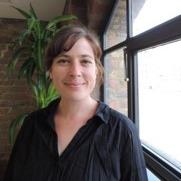 Christine Horejs Nature Reviews Bioengineering
Christine Horejs Nature Reviews Bioengineering Milica Radisic Professor University of Toronto
Milica Radisic Professor University of TorontoDr. Milica Radisic is a Professor at the University of Toronto, Tier 1 Canada Research Chair in Organ-on-a-Chip Engineering and a Senior Scientist at the Toronto General Research Institute. She is also Director of the NSERC CREATE Training Program in Organ-on-a-Chip Engineering & Entrepreneurship and a co-lead for the Center for Research and Applications in Fluidic Technologies. She is a Fellow of the Royal Society of Canada-Academy of Science, Canadian Academy of Engineering, the American Institute for Medical & Biological Engineering, Tissue Engineering & Regenerative Medicine Society as well as Biomedical Engineering Society. She was a recipient of the MIT Technology Review Top 35 Under 35, Queen Elizabeth II Diamond Jubilee Medal, NSERC E.W.R Steacie Fellowship, YWCA Woman of Distinction Award, Killam Fellowship, Acta Biomaterialia Silver Medal, and Humboldt Research Award to name a few. Her research focuses on organ-on-a-chip engineering and development of new biomaterials that promote healing and attenuate scarring. She developed new methods to mature iPSC derived cardiac tissues using electrical stimulation.
She is an Executive Editor for ACS Biomaterials Science & Engineering, Senior Consulting Editor for the Journal of Molecular and Cellular Cardiology, a reviewing editor for eLife and a member of the editorial board of another 8 journals. She served on the Board of Directors for Ontario Society of Professional Engineers, Canadian Biomaterials Society and McMaster University Alumni Association. She organized Keystone, EMBO and ECI conferences and numerous sessions at TERMIS and BMES meetings. She served as a Scientific Officer for the Canadian Institutes of Health Research and member of review panels for CIHR, NIH and Israel Ministry of Education. She is the Chair of Investment Committee for Serbia Innovation Fund. She is a co-founder of two companies TARA Biosystems (acquired by Valo Health), that uses human engineered heart tissues in drug development and safety testing, and Quthero that advances regenerative hydrogels. Her work has been presented in over 260 publications, garnering over 25,000 citations with an h-index of 80. Her publications appeared in Cell, Nature Materials, Nature Methods, Nature Protocols, Nature Communications, PNAS etc. Jürgen Knoblich Deputy Scientific Director IMBA Austrian Academy of Science
Jürgen Knoblich Deputy Scientific Director IMBA Austrian Academy of ScienceJürgen Knoblich, currently deputy scientific director at IMBA, started his scientific career as a graduate student at the Max Planck Institute in Tübingen where he worked on cell cycle control in Drosophila under the guidance of Christian Lehner. In 1994 he moved to San Francisco to join the laboratory of Yuh Nung and Lily Jan where he discovered his interest in asymmetric cell division, a topic that has remained the main focus of his research ever since.
In 1997, Jürgen Knoblich returned to Europe to become a group leader at the Institute of Molecular Pathology (I.M.P.) in Vienna, Austria. In2004, he moved next door to the newly founded Institute of Molecular Biotechnology of the Austrian Academy of Sciences (IMBA). He became a senior scientist and was appointed deputy director of the institute in 2005 and director from 2018 -2024.
Jürgen Knoblich has received several awards such as the Wittgenstein prize, the Schroedinger award, the FEBS anniversary award and the Hans Krebs medal. He is a member of the European Molecular Biology Organization (EMBO), the Austrian Academy of Sciences, the Pontifical Academy of Sciences and the Board of Directors of ISSCR (International Society for Stem Cell Research). He acts on the EMBO council and the editorial boards of Current Biology, Current Opinion in Cell Biology and the Journal of Cell Biology.
His research focuses on the development of the human brain and the study of neurodevelopmental disorders. Knoblich's group has established a 3D culture system that recapitulates the early steps of human brain development in cell culture allowing brain pathologies and human specific developmental events to be studied in unprecedented detail. They have used this system for modelling various neurodevelopmental disorders and genetic screening in human brain tissue.
-
Available On Demand
Session 2: Engineered Models as Alternatives to Animal Models in Preclinical Research
Session Chair Robert Guilliatt 11.00 - 11.45 CET Human (disease) models to tackle inflammatory and genetic diseases of human epithelia Sarah Hedtrich 11.45 - 12.30 CET Organoids in 3D and 2D Hans Clevers 12.30 - 13.30 CET Lunch & Meet the Editors:
"Ask Me Anything"
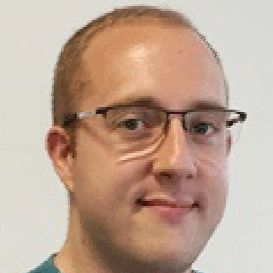 Robert Guilliatt Nature Communications
Robert Guilliatt Nature Communications Sarah Hedtrich Associate Professor School of Biomedical Engineering, University of British ColumbiaProf. Hedtrich obtained her PhD in Pharmaceutical Sciences from the Freie Universität Berlin in 2009. During her postdoc, she moved to the Ludwig-Maximilians-University in Munich and Tufts University in Boston, USA. She held one of the prestigious Johanna-Quandt-Professorships at the Berlin Institute of Health @ Charité in Berlin and currently holds a Tier I Canada Research Chair in Human Disease Models at the School of Biomedical Engineering at the University of British Columbia. Her research centers around inflammatory and genetic diseases of human epithelia with a focus on skin and lungs and bioengineering of complex, human disease models which are leveraged to develop next-generation therapies. She co-/authored over 100 peer-reviewed articles in high-impact journals including the ACS Nano, Small, Nature Reviews Bioengineering, and EMBO Molecular Medicine.
Sarah Hedtrich Associate Professor School of Biomedical Engineering, University of British ColumbiaProf. Hedtrich obtained her PhD in Pharmaceutical Sciences from the Freie Universität Berlin in 2009. During her postdoc, she moved to the Ludwig-Maximilians-University in Munich and Tufts University in Boston, USA. She held one of the prestigious Johanna-Quandt-Professorships at the Berlin Institute of Health @ Charité in Berlin and currently holds a Tier I Canada Research Chair in Human Disease Models at the School of Biomedical Engineering at the University of British Columbia. Her research centers around inflammatory and genetic diseases of human epithelia with a focus on skin and lungs and bioengineering of complex, human disease models which are leveraged to develop next-generation therapies. She co-/authored over 100 peer-reviewed articles in high-impact journals including the ACS Nano, Small, Nature Reviews Bioengineering, and EMBO Molecular Medicine. Hans Clevers Head of Pharma Research & Early Development Professor of Molecular Genetics, Utrecht UniversityHans Clevers has been the Head of Pharma Research and Early Development (pRED) at Roche since 2022. In this role, he is responsible for the strategy, development and management of all aspects of early research and discovery at pRED, from lead identification to target progression to late stage development. In 2023, he oversaw the successful establishment of the Institute of Human Biology, a key long-term investment to bridge the gap between academic and pharmaceutical research in Basel, Switzerland. In addition, he is a member of the expanded Corporate Executive Committee for Roche.
Hans Clevers Head of Pharma Research & Early Development Professor of Molecular Genetics, Utrecht UniversityHans Clevers has been the Head of Pharma Research and Early Development (pRED) at Roche since 2022. In this role, he is responsible for the strategy, development and management of all aspects of early research and discovery at pRED, from lead identification to target progression to late stage development. In 2023, he oversaw the successful establishment of the Institute of Human Biology, a key long-term investment to bridge the gap between academic and pharmaceutical research in Basel, Switzerland. In addition, he is a member of the expanded Corporate Executive Committee for Roche.
Hans Clevers is world-renowned for his work in the fields of cell biology, molecular signaling and stem cells. His research groups’ discoveries include the detailed characterization of the molecular effectors and integrators of the “Wnt” pathway, which play crucial roles in health and disease, including colon cancer. His group provided important insights into the roles of the LGR5 protein in stem cell regeneration. The Clevers's group pioneered “organoids”, 3-dimensional in vitro structures that behave anatomically and molecularly like the organ from which they are derived. Organoid biology has revolutionized the way we understand and approach human biology and medicine. (https://www.hubrecht.eu/research-groups/clevers-group/)
Hans Clevers obtained his MD and PhD degrees from the University Utrecht, the Netherlands. He holds a professorship in Molecular Genetics from the University Utrecht. He previously held directorship/President positions at the Hubrecht Institute, the Royal Netherlands Academy of Arts and Sciences and the Princess Maxima Center for pediatric oncology.
He is the recipient of multiple international scientific awards, including the Breakthrough Prize in Life Science.
Hans Clevers is a member of the Royal Netherlands Academy of Arts and Sciences (NL), the National Academy of Sciences (USA), the Royal Society (UK) and the Academie des Sciences (France). He is also Chevalier de la Légion d’Honneur and Knight in the Order of the Netherlands Lion, among many other international accolades. -
Available On Demand
Session 3: Disease-Specific Engineered Models
Sesson Chair Vesna Todorovic 13.30 - 14.15 CET Modeling single organ and systemic diseases using patient-specific bioengineered platforms Gordana Vunjak-Novakovic 14.15 - 15.00 CET Using intestinal organoids to disentangle diet-microbe-host interaction in early life Christopher Stewart 15.00 - 15.30 CET Short Talks (selected from abstracts) 15.30 - 15.45 CET Coffee Break
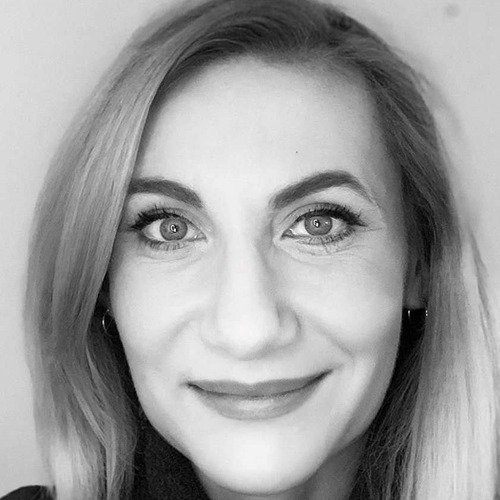 Vesna Todorovic Nature Cardiovascular Research
Vesna Todorovic Nature Cardiovascular Research Gordana Vunjak-Novakovic Professor Columbia University
Gordana Vunjak-Novakovic Professor Columbia UniversityGordana Vunjak-Novakovic is University Professor, the highest academic rank at Columbia University, and the first engineer to receive this distinction. She is also the Mikati Foundation Professor of Biomedical Engineering, Medical Sciences and Dental Medicine. She directs the Laboratory for Stem Cells and Tissue Engineering, the NIH Tissue Engineering Resource Center, and Columbia’s Center for Dental and Craniofacial Research. The focus of her lab is on engineering functional human tissues for use in regenerative medicine and patient-specific “organs-on-chip” models of disease. She published 495 journal articles, including those in Nature, Cell, Nature Biotechnology, Nature Medicine, Nature Biomedical Engineering, Nature Methods, Nature Genetics, Science Advances, PNAS, Cell Stem Cell and Science Translational Medicine. She has mentored over 250 trainees and founded five biotech companies. Among her many recognitions, she was elected to nine national and international academies, including Academia Europaea, the National Academies of Engineering, Medicine and Inventors, the Royal Society of Canada Academy of Science and the American Academy of Arts and Sciences.
 Christopher J Stewart Professor of Human Microbiome Research Newcastle UniversityProfessor Christopher Stewart gained PhD in Microbial Ecology at Northumbria University (UK), followed by postdoctoral training at Baylor College of Medicine (Houston, Texas), before starting his lab at Newcastle University (UK) in 2018. He has received numerous awards, including Blavatnik Award for Life Sciences Laureate, Microbiology Society Fleming Prize, NOSTER & Science Microbiome Finalist Prize, the Applied Microbiology International WH Pierce Prize, and the Neonatal Society Rising Star Award. He has also been elected to the Royal Society UK Young Academy and is Editor in Chief of Gut Microbiology.
Christopher J Stewart Professor of Human Microbiome Research Newcastle UniversityProfessor Christopher Stewart gained PhD in Microbial Ecology at Northumbria University (UK), followed by postdoctoral training at Baylor College of Medicine (Houston, Texas), before starting his lab at Newcastle University (UK) in 2018. He has received numerous awards, including Blavatnik Award for Life Sciences Laureate, Microbiology Society Fleming Prize, NOSTER & Science Microbiome Finalist Prize, the Applied Microbiology International WH Pierce Prize, and the Neonatal Society Rising Star Award. He has also been elected to the Royal Society UK Young Academy and is Editor in Chief of Gut Microbiology.
His lab is focused on microbial-host interaction in the gut of infants born premature (<32 weeks gestation), utilising multi-omic analysis of clinical samples in combination with basic microbiology and an experimental organoid co-culture system. He is also supporting a new UK-wide programme of work aimed at investigating how the gut microbiome predicts response to biological therapy in adult inflammatory bowel disease. He has published over 120 peer-reviewed articles in leading journals, which have wide implications for a better understanding of diet-microbe-host interactions. His work has contributed to the development of novel disease biomarkers and targeted therapeutic interventions to promote human health. -
Available On Demand
Session 4: Computational Approaches in Disease Modelling
Session Chair
Filipe Almeida 15.45 - 16.30 CET Digital twins and AI for personalized medicine in cardiovascular disease
Natalia Trayanova 16.30 - 16 45 CET Short Talk (selected from abstracts) 16.45 - 17.00 CET Short Talk (selected from abstracts) 17.00 - 19.00 CET Poster Session & Networking
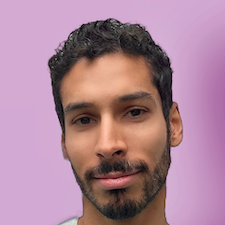 Filipe Almeida Nature Biomedical Engineering
Filipe Almeida Nature Biomedical Engineering Natalia Trayanova Professor of Biomedical Engineering Johns Hopkins University
Natalia Trayanova Professor of Biomedical Engineering Johns Hopkins UniversityDr. Trayanova holds the inaugural Murray B. Sachs Professorship in the Department of Biomedical Engineering at Johns Hopkins University. She is also a Professor of Medicine at the Johns Hopkins School of Medicine, and a Professor of Applied Mathematics and Statistics. She directs the Alliance for Cardiovascular Diagnostic and Treatment Innovation, and is also the Director for AI Research in Health and Medicine in the Data Science and AI Institute. She also directs the Computational Cardiology Laboratory.
Trayanova has pioneered the development and use of patient heart digital twins of representing the functioning of the patient’s organ. Using her first-of-their-kind personalized heart digital twins and deep learning approaches, Dr. Trayanova has developed new technologies for accurately predicting risk of cardiac arrest and for the precise delivery of catheter ablation therapies in patients with heart rhythm disorders. For her pioneering work in computational cardiology, she has received NIH Director’s Pioneer Award. Her research output includes over 450 published papers and book chapters. She has published extensively in the most prestigious journals, such as The Lancet, Nature Cardiovascular Medicine, Nature Communications, Nature BME, Science Advances, Science TM, Physiological Reviews, Nature Reviews Cardiology, eLife, and others.
Dr. Trayanova is the inventor on numerous patents and patent applications filed world-wide, and a Fellow of the National Academy of Inventor. Trayanova’s work has received world-wide recognition, and she is the recipient of numerous honors and awards. She has received the Distinguished Scientist Award and the Zipes Distinguished Award from Heart Rhythm Society the Gordon Moe Award by the Cardiac Electrophysiology Society. She is the recipient of the Hodgkin-Huxley-Katz Award by the Physiological Society. Trayanova has been named a Fellow of every American and European clinical cardiology society, testifying to her impact in clinical practice. In 2025, she was elected on the Board of Trustees of Heart Rhythm Society, a 9000-member clinical society, and is the only non-MD to hold such a position. She is also a Fellow of AIMBE, BMES, IAMBE, IUPS and IEEE. She has given over 400 invited lectures, majority of them keynotes or plenary lectures. Dr. Trayanova’s work has also received widespread media coverage and recognition.
-
Available On Demand
Session 5: Translation of Engineered Disease Models
Session Chair Bruno Castro 9.00 - 9.45 CET
Engineering next-generation tumour organoidsMatthias Lutolf 9.45 - 10.30 CET Dynamic biomaterials to enable biofabrication of personalized tissue mimics
Sarah Christine Heilshorn 10.30 - 10.55 Engineering cardiac tissues: From 3D printing to Bionic organs Tal Dvir 10.55 - 11.15 Coffee Break
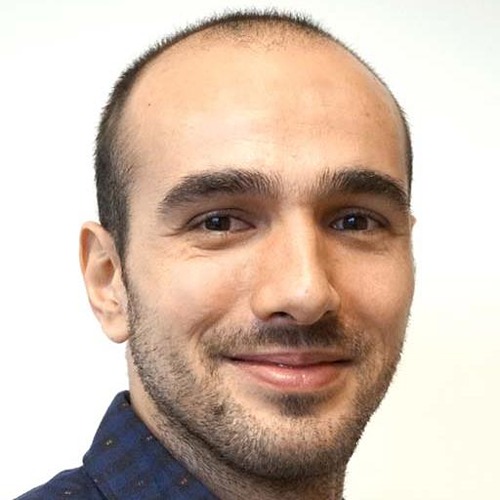 Bruno Castro Nature Materials
Bruno Castro Nature Materials Matthias Lütolf Professor IHB, Roche and EPFL
Matthias Lütolf Professor IHB, Roche and EPFLProfessor Matthias Lutolf is the founding director of Roche’s Institute of Human Biology (IHB) where he leads the Translational Bioengineering department. The IHB focuses on pioneering research in organoids, human biology, and translational bioengineering, bridging the gap between academic and pharmaceutical research. Lutolf's academic journey began at ETH Zurich, where he studied materials engineering and earned a PhD in biomedical engineering. Following his postdoctoral studies at Stanford University, he established his own laboratory at EPFL in 2007. From 2014 to 2018, he served as the director of EPFL’s Institute of Bioengineering. Lutolf’s own research at IHB is dedicated to developing advanced bioengineering strategies to create next-generation organoids with enhanced reproducibility and physiological relevance, essential for early drug development. His teams' work has been published in renowned journals such as Nature and Science. Additionally, his innovations have led to the commercialization of products, including devices and assays for personalized medicine, and the co-founding of biotech startups in Lausanne.
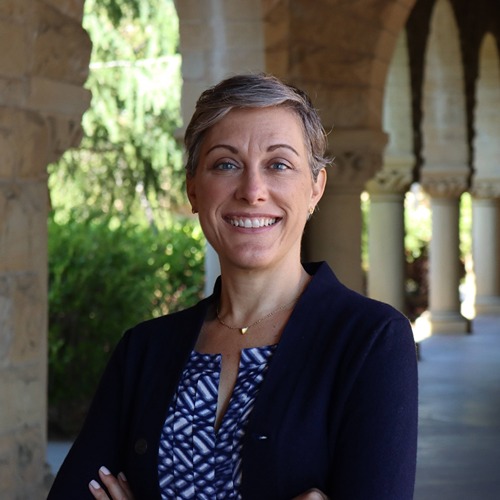 Sarah Christine Heilshorn Professor Stanford University
Sarah Christine Heilshorn Professor Stanford UniversitySarah Heilshorn is Rickey/Nielsen Professor of Engineering and Chair of the Department of Materials Science & Engineering at Stanford University. She holds courtesy faculty appointments in the Departments of Chemical Engineering and Bioengineering and is a Bass University Fellow in Undergraduate Education.
Her laboratory integrates concepts from materials science and protein engineering to design new, bioinspired materials. These materials have applications in regenerative medicine, disease modeling, and 3D bioprinting. Her work has been recognized with several awards, including the NIH New Investigator Award, the NSF Career Award, and most recently the 2024 Senior Scientist award from the International Society for Biofabrication.
As the first woman faculty member hired into the Materials Science & Engineering Department at Stanford, Prof. Heilshorn is a fervent supporter of diversifying the engineering community. She serves in multiple roles to help achieve this goal, including being an active mentor for several graduate student and postdoctoral scholar programs. She has been elected a Fellow of the American Institute for Medical and Biological Engineering. She currently serves as an Editor for the journal Acta Biomaterialia and on the Board of Directors for the Tissue Engineering and Regenerative Medicine International Society (TERMIS) North America chapter.
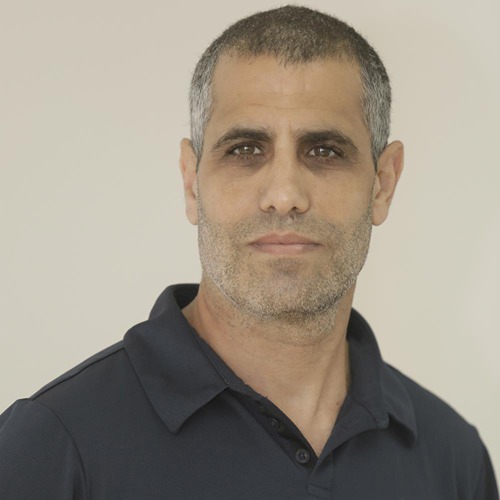 Tal Dvir Tel Aviv University
Tal Dvir Tel Aviv UniversityTal Dvir is a Professor at Tel Aviv University, Israel. He obtained his B.Sc. (2003) and Ph.D (2008) degrees from the faculty of Engineering at Ben-Gurion University of the Negev in Israel. His Ph.D research focused on cardiac tissue engineering and regeneration. Tal continued his postdoctoral studies in the laboratory of Prof. Robert Langer in the Department of Chemical Engineering at MIT. His postdoc research focused on advanced materials for tissue engineering and regeneration. In October 2011 Tal was recruited by the Department of Biotechnology and the Center for Nanotechnology at Tel Aviv University to establish the Laboratory for Tissue Engineering and Regenerative Medicine. In 2013, Tal also joined the newly established Department of Materials Science and Engineering at Tel Aviv. In 2020, he joined the Department of Biomedical Engineering.
Tal’s laboratory designs and develops smart bio and nanomaterials and technologies for engineering complex tissues and organs, such as the heart, brain, spinal cord, intestine, eyes, and more. During his career, Tal has published many high-impact papers and received numerous prizes and awards. Tal is also an inventor of numerous patents.
Tal is currently the Director of Tel Aviv University Center for Nanoscience and Nanotechnology and the Founding Director of the Sagol Center for Regenerative Biotechnology.
-
Available On Demand
Session 6: Multi-Organ Models
Session Chair Robert Guilliatt 11.15 - 12.00 CET Engineering organoids for advanced disease models Seung-Woo Cho
 Robert Guilliatt Nature Communications
Robert Guilliatt Nature Communications Seung-Woo Cho Professor Yonsei University
Seung-Woo Cho Professor Yonsei UniversitySeung-Woo Cho is a Professor in the Department of Biotechnology at Yonsei University, Republic of Korea. He earned his B.S., M.S., and Ph.D. degrees in Chemical Engineering from Seoul National University in 1999, 2001, and 2006, respectively. He subsequently completed his postdoctoral training in the Department of Chemical Engineering at the Massachusetts Institute of Technology (MIT).
Professor Cho joined the faculty of Yonsei University in 2010 and was appointed Underwood Distinguished Professor in 2020. Since 2017, he has also served as an associate faculty member at the Institute for Basic Science (IBS), and in 2023, he was named a Yonsei Fellow. His research focuses on engineering stem cells, reprogrammed cells, and organoids using functional biomaterials, nanomaterials, and microdevices for applications in tissue engineering, disease modeling, and drug discovery. He has authored over 220 peer-reviewed publications, which have garnered more than 15,000 citations, and he holds over 160 filed and pending patents. Professor Cho’s contributions to biomedical engineering field have been recognized with numerous awards, including the Asan Award in Medicine (2016), the Scientist of the Month Award (2022), and the Samil Prize (2023). He is also the founder and CEO of CellArtgen, a biotechnology startup established in 2020. -
Available On Demand
Session 7: Engineering Inclusive Models
Session Chair Filipe Almeida 14.00 - 14.45 CET Keynote Margherita Turco 14.45 - 15.15 CET Short Talks (selected from abstracts) 15.15 - 15.30 Coffee Break
 Filipe Almeida Nature Biomedical Engineering
Filipe Almeida Nature Biomedical Engineering Margherita Turco Group Leader Turco Friedrich Miescher Institute for Biomedical ResearchDr. Margherita Yayoi Turco is a Group Leader at the Friedrich Miescher Institute in Basel, where she leads groundbreaking research on human placental and uterine development. After studying veterinary biotechnology in Bologna and earning her PhD in Milan, she pioneered 3D organoid platforms at Cambridge to model maternal–fetal interactions. Her work addresses critical issues like trophoblast invasion, uterine regeneration, and pregnancy disorders such as pre-eclampsia. Dr. Turco holds high-profile awards (ERC Starting Grant, L’Oréal Women in Science) and continues to publish influential findings using organoid and single-cell technologies.
Margherita Turco Group Leader Turco Friedrich Miescher Institute for Biomedical ResearchDr. Margherita Yayoi Turco is a Group Leader at the Friedrich Miescher Institute in Basel, where she leads groundbreaking research on human placental and uterine development. After studying veterinary biotechnology in Bologna and earning her PhD in Milan, she pioneered 3D organoid platforms at Cambridge to model maternal–fetal interactions. Her work addresses critical issues like trophoblast invasion, uterine regeneration, and pregnancy disorders such as pre-eclampsia. Dr. Turco holds high-profile awards (ERC Starting Grant, L’Oréal Women in Science) and continues to publish influential findings using organoid and single-cell technologies. -
Available On Demand
Session 8: Modelling the Immune System
Session Chair Christine Horejs 15.30 - 16.15 CET Immune Organoids and Lymphoid-integrated Organ-on-Chip Systems Ankur Singh 16.15 - 17.30 CET Poster Session 17.30 - 18.00 Short Talks (selected from abstracts)
 Christine Horejs Nature Reviews Bioengineering
Christine Horejs Nature Reviews Bioengineering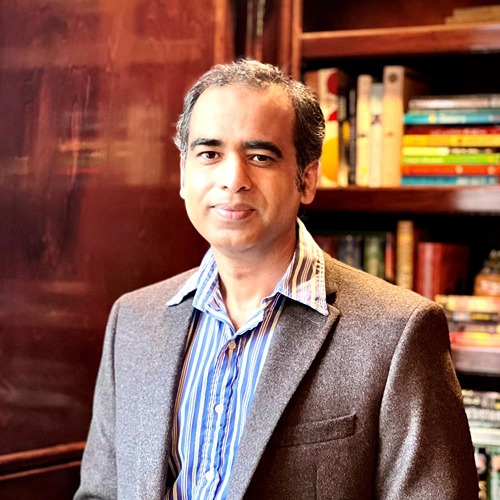 Ankur Singh Georgia Institute of Technology
Ankur Singh Georgia Institute of TechnologyAnkur Singh is a Carl Ring Family Professor in the George W. Woodruff School of Mechanical Engineering at Georgia Institute of Technology with a joint appointment in the Wallace H. Coulter Department of Biomedical Engineering at Georgia Tech and Emory University. At Georgia Tech, he serves as the Director of the Center for Immunoengineering. He is a Fellow of the American Institute for Medical and Biological Engineering. His laboratory develops immune organoids and enabling technologies to understand healthy and diseased immune cells and translate therapeutics. He has received funding from the National Institute of Health, National Science Foundation, Wellcome Leap HOPE, Department of Defense, Defense Threat Reduction Agency, the Curci Foundation, and the Lymphoma and Leukemia Society. He has published >80 articles in peer-reviewed journals, including Nature Materials, Nature Nanotechnology, Nature Biomedical Engineering, Nature Immunology, Nature Methods, Nature Communications, Nature Reviews Materials, Nature Protocols, Science Advances, Cell Reports, PNAS, Blood, and Advanced Materials. He has written multiple editorials for Science Translational Medicine. He is a recipient of the NSF CAREER, Society for Biomaterials Mid Career Award, Society for Biomaterials Young Investigator Award, CMBE Young Innovator Award, CMBE Rising Star Award, 3M Faculty Award, DoD Career award, Georgia Tech CIOS Teaching Award, Cornell’s Teaching Excellence Award, and Cornell’s Research Excellence Award. His immune organoids were identified among the Top 100 Discoveries of 2015 by Discover Magazine. He is the Founder and past Chair of the Immune Engineering SIG at the Society for Biomaterials and Controlled Release Society. He currently serves as the Associate Editor for Science Advances, Biomaterials, and Cellular and Molecular Bioengineering. He serves on the Executive Advisory Board of Advanced NanoBiomed Research journal and on the editorial board of Current Opinion in Biomedical Engineering. He serves on the Scientific Advisory Board of Chan Zuckerberg Initiative, Chicago Biohub.
